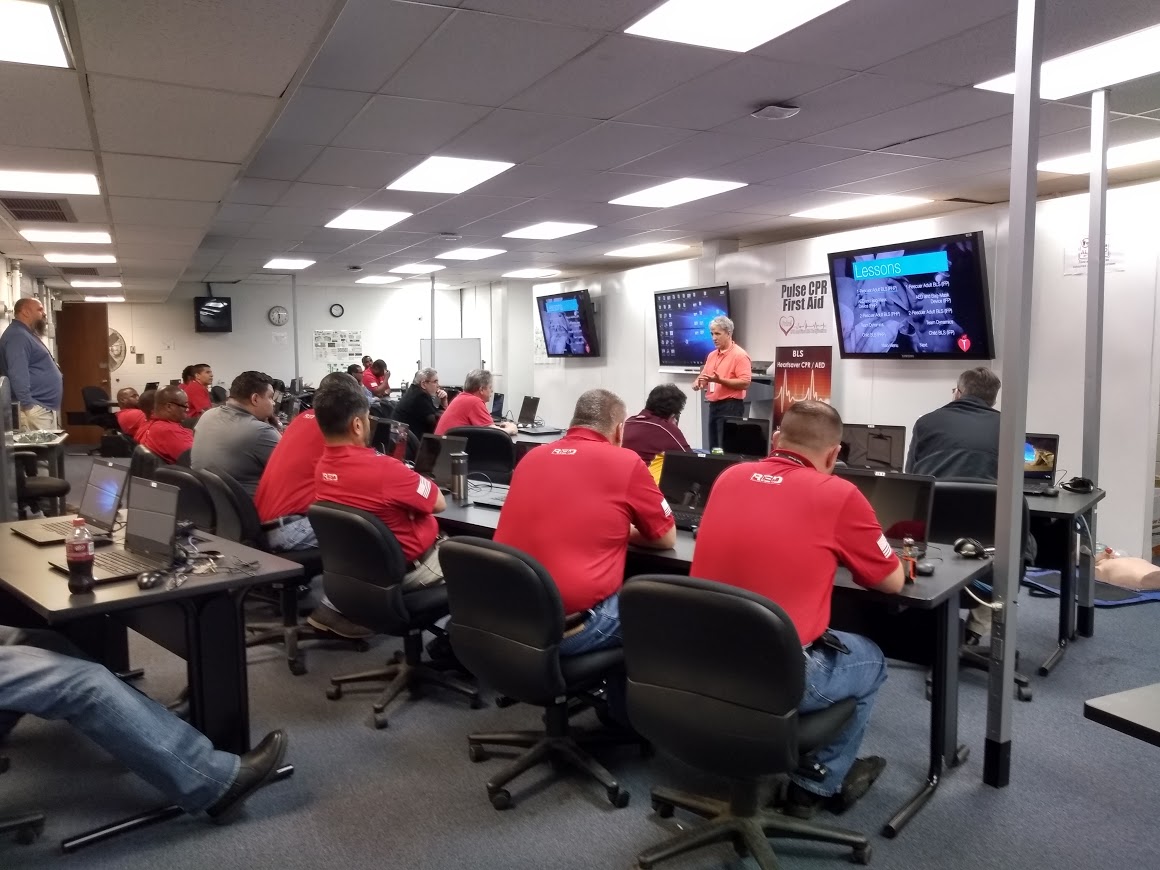Why You Should Learn CPR
Cardiac arrest – an electrical malfunction in the heart that causes an irregular heartbeat (arrhythmia) and disrupts the flow of blood to the brain, lungs and other organs – is a leading cause of death. Each year, over 350,000 out-of-hospital cardiac arrests occur in the United States.
When a person has a cardiac arrest, survival depends on immediately receiving CPR from someone nearby.
When a person has a cardiac arrest, survival depends on immediately receiving CPR from someone nearby.
- Only about 46 percent of people who experience an out-of-hospital cardiac arrest receive the immediate help that they need before professional help arrives.
- About 70 percent of out-of-hospital cardiac arrests happen in homes. If you are called on to give CPR in an emergency, you will most likely be trying to save the life of someone you love: a child, a spouse, a parent or a friend.
- CPR, especially if performed immediately, can triple a cardiac arrest victim’s chance of survival.
To find a CPR course near you, click here.
Hands-Only CPR Can Save Lives
- Hands-Only CPR has just two easy steps: If you see a teen or adult suddenly collapse, (1) Call 911; and (2) Push hard and fast in the center of the chest to the beat of the disco song “Stayin’ Alive.”
- People feel more confident performing Hands-Only CPR and are more likely to remember the correct rate when trained to the beat of a familiar song.
- During CPR, you should push on the chest at a rate of 100 to 120 compressions per minute. The beat of “Stayin’ Alive” is a perfect match for this.
- Watch the 90-second Hands-Only CPR video and share it with the important people in your life.
The Difference Between a Heart Attack and Cardiac Arrest
People often use these terms interchangeably, but they are not the same. A heart attack is when blood flow to the heart is blocked, and sudden cardiac arrest is when the heart malfunctions and suddenly stops beating unexpectedly. A heart attack is a “circulation” problem and sudden cardiac arrest is an “electrical” problem.
These two distinct heart conditions are linked. Most heart attacks do not lead to cardiac arrest. But when cardiac arrest occurs, heart attack is a common cause. Learn more about these conditions and what you can do, here. Warning Signs of a Heart Attack
These two distinct heart conditions are linked. Most heart attacks do not lead to cardiac arrest. But when cardiac arrest occurs, heart attack is a common cause. Learn more about these conditions and what you can do, here. Warning Signs of a Heart Attack
Some heart attacks are sudden and intense – the “movie heart attack,” where no one doubts what’s happening. But most heart attacks start slowly, with mild pain or discomfort. Often people affected aren’t sure what’s wrong and wait too long before getting help. Read more about the signs.






